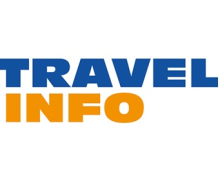Large retail travel companies are enticing experienced consultants back to the industry with flexible employment contracts that take time and money into account. But there are also opportunities for independent consultants to help re-staff businesses, including mall travel shops.
Heads of prominent agency brands say there is an opportunity for agents to rejoin high street or mall travel agencies, and employers could be willing to strike a compromise on hours and remuneration packages.
Club Travel CEO, Gary Mulder, said: “ITCs went on their own as they had a customer base that could give them a fair degree of security in bookings and earnings. These consultants are top travel people and of huge value to the industry. Their customer base will probably have diminished over this tough time and they do not necessarily have the means to generate new customers through marketing their brands. Established and reputable larger brands do have this, and they need good staff.”
FlightSite GM, Kim Kral, was also open to the idea of retail brands attracting more “permanent” ITCs – that’s if the consultants hadn’t moved on from the industry completely. For those who were willing to give up the flexibility and benefits of working completely independently (bearing in mind that shopping malls come with set trading days and hours), there were opportunities.
In the view of Mulder, some of the implications for businesses recruiting ITCs would require a review of remuneration models, but it could still work as long as the result was a win-win for all parties without compromising the HR policies of the business.
Kral said, regarding ITCs rejoining a brick-and-mortar agency: “They may not be able to re-adapt to a target-driven, team and office environment that doesn’t offer the same flexibility as working independently. On the flip side, they will bring a great deal of knowledge and experience to the table.”
Sure Travel CEO, Vanya Lessing, said all the company’s agents were now independents. “Our job at head office is to make sure we have a value proposition for both the travel agent and the ITC. That’s why, during the pandemic, we focused on our technology and on Sure Connect – Sure’s platform that takes the entire trip cycle of a customer into account.”
For those businesses taking on ITCs, Lessing said: “Look at workflow processes and make sure that agreements are in place. When it comes to onboarding someone, you should have a checklist, and ticketing and service training.”
She expected it could be a win-win situation for many agencies that had been caught off-guard by the rapid recovery of, specifically, leisure business.
While the focus for retailers coming out of the pandemic is growth, one of the red flags that cropped up during discussions about employing a contract workforce was that of risk.
Lessing urged businesses to ensure that adequate quality control measures were in place and that the necessary security checks had been done before any contract was signed. “It’s not just a ticketing arrangement,” she said. “You really do have to do some verification.”
She said flexible employment T&Cs could stop the industry brain drain. “Employees who never had the opportunity to work from home when they were at the top of their game now have a choice and can renegotiate their employment contracts. Employers are having to think about different scenarios.
“To get back to where you were, it is about working smarter,” Lessing said.














